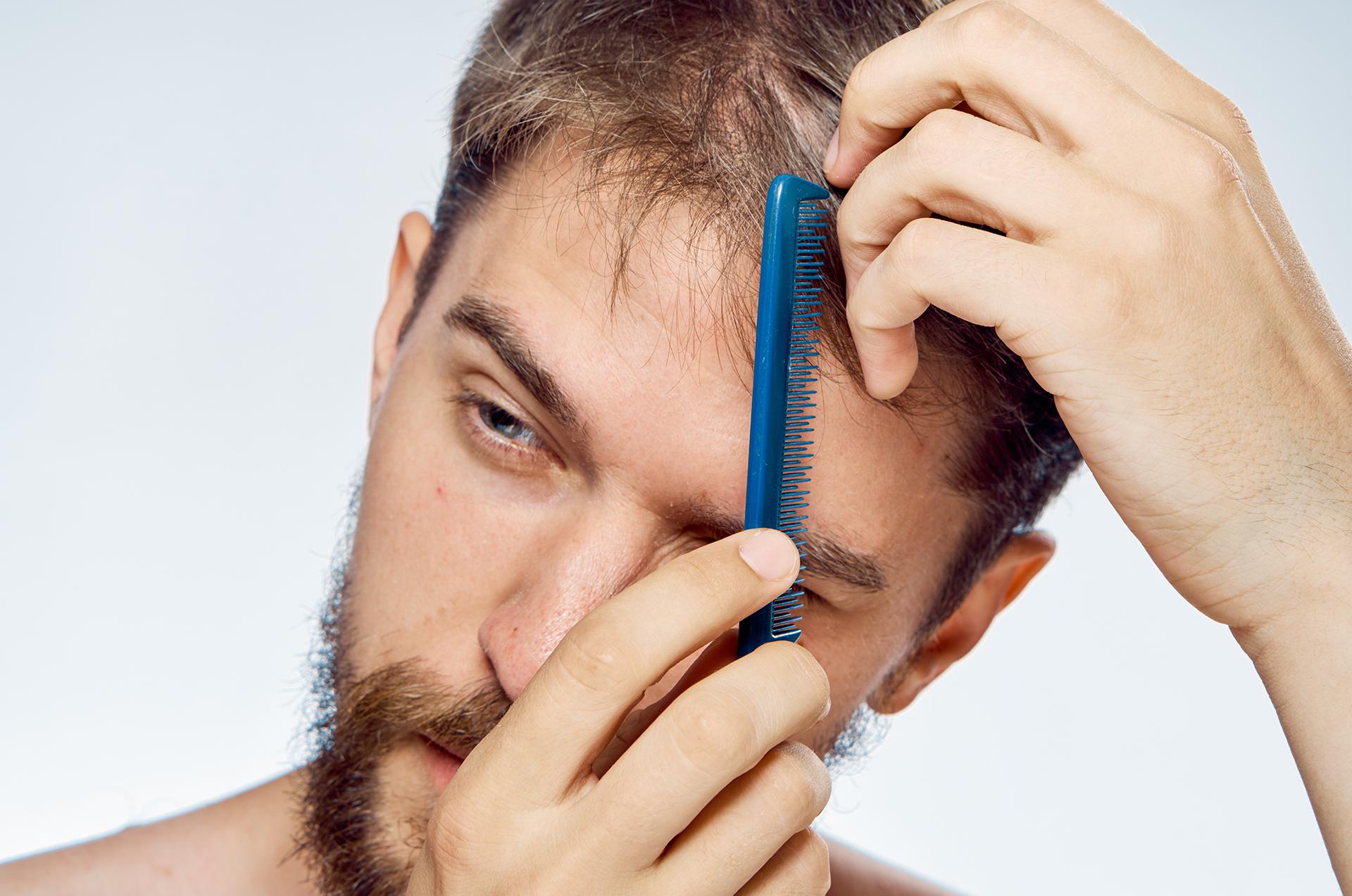What causes hair loss and what can you do?
Our editorial team
11 November 2020
4 min read
Did you know that 25% of those who suffer from male hair loss begin to lose their hair before they turn 30? And that 90% of male hair loss is caused by male pattern baldness (although there are different types of hair loss)? Also that the most common form of hair loss, androgenic alopecia, can affect both men and women?
Hair loss has always been a tough subject to talk about, and many feel ashamed of their receding or thinning hair. But it is important to understand that the condition is widespread and affects around 60% of men and 50% of women.
What causes hair loss?
Common causes of male hair loss include age, genetics, medication, chemical exposure, psychological concerns, and nutrition. Common causes of female hair loss are medication, chemical exposure, psychological concerns, pregnancy, nutrition and styling (such as frequent hair dyeing, tight braids, heating and bleaching).
Not all forms of hair loss can be reversed, but when dealt with early, treatment can make a real impact on the hair, and possibly your confidence.
“when dealt with early, treatment can make a real impact on the hair”
Androgenic alopecia is a genetic condition caused by changes in hormonal levels. These changes can occur because of pregnancy, menopause, and taking contraceptives with high levels of androgen for women, and prostate cancer, high blood pressure, diabetes, age, and coronary heart disease for men.
The condition appears differently from men and women too. Men will experience a receding hairline or balding, while women’s hair thins over time.
Androgenic alopecia
Androgenic alopecia is inevitable for many men, and is sadly incurable. However, its severity can be controlled.
This condition can be treated in several ways, including medication, such as Propecia, hair transplants, and over-the-counter products.
Androgenic alopecia, or hair loss, is not to be confused with hair shedding. Everyone sheds between 70 and 100 hair daily, and this is totally normal. Each hair on our head (approximately 100,000 hairs) grows for 2 - 6 years, before going into a resting stage and falling off, being replaced by a new hair.
Nutrition
Your nutrition plays a significant role in the health of your hair. For example, it has been proven that insulin resistance can lead to both male pattern baldness and female pattern baldness. Insulin resistance can also lead to diabetes and heart disease. It is caused by a diet heavy in saturated fats, sodium, and added sugar.
A lack of protein can also damage hair. If you are a vegetarian or vegan, make sure you get all the nutrition required for strong hair.

Hair loss is one of the most common complications of eating disorders, as sufferers often don’t get all the nutrients they need.
If you are worried that your diet is causing hair loss, make sure to consume enough protein, iron, vitamin B1, zinc, and vitamin D.
Psychological causes
Hair loss that is caused by stress or psychological issues is usually considered temporary (alopecia effluvium). This usually occurs for women after childbirth or those with extremely poor diets. This form of hair loss is more prominent at the top of the head and rarely leads to a receding hairline.
“Both lack of vitamins and too many vitamins can have an effect on your hair growth”
Dr Mo is a hair specialist with his own transplant clinic. He states that, “whilst hair loss is hard to prevent, there are ways to slow down the process. Depending on what kind of hair loss you suffer from, you can make sure that you keep a balanced diet as both lack of vitamins and too many vitamins can have an effect on your hair growth. Take care of your hair and avoid excessive braiding, hair dyeing, and bleaching, and acknowledge triggers that might feel stressful as stress can cause your hair to fall off.”

Transplants
Hair transplantation has become more popular in recent years, and there are now a lot of clinics that offer the procedure. However, this does not include NHS-affiliated clinics, as it is considered a cosmetic surgery. The procedure usually involves taking hair from other parts of the body to put into the affected areas.
After a hair transplant, you can usually go back to your normal life after three days, though the surgery can make your head feel swollen and sore for a while.
Before you invest in any surgery, make sure that your chosen clinic is registered with the Care Quality Commission (CQC) to assure your safety and the quality of the transplant. Many unregistered clinics advertise themselves online, without adhering to the necessary regulations.
